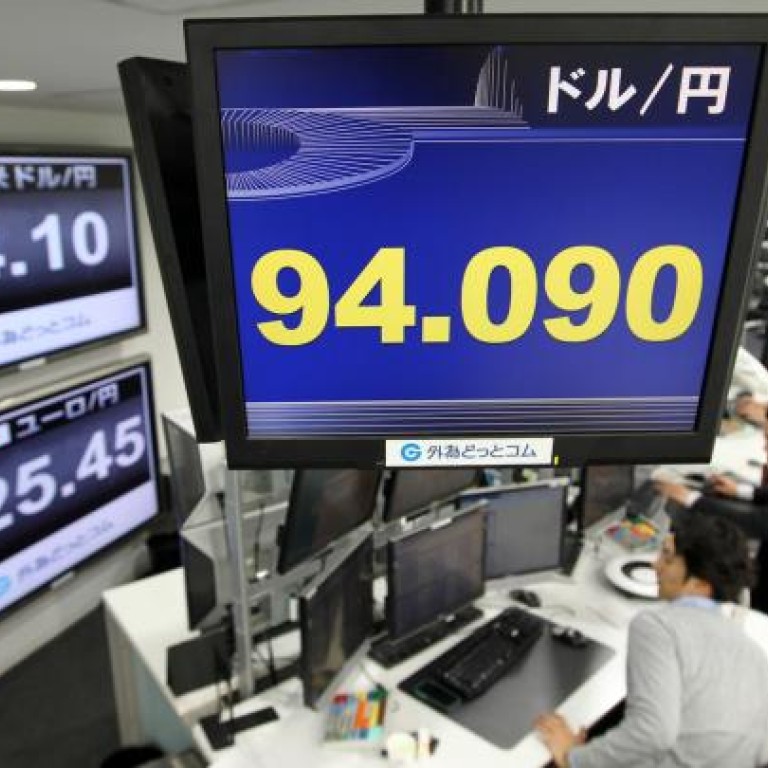
Yen continues to slide as G20 holds off from censure
The yen dropped again yesterday, extending losses that have made it the worst-performing major currency in the past three months, after the Group of 20 refrained from censuring Japanese policies driving the decline.
The Japanese currency approached its weakest since May 2010 against the US dollar as Morgan Stanley said the final G20 communiqué fell short of last week's Group of Seven statement and meant recent trends in major currencies were set to resume.
The British pound fell towards a seven-month low against the dollar on speculation that the Bank of England will tolerate faster inflation. The euro fell against the dollar before an election in Italy this week.
Imre Speizer, a strategist at Westpac Banking in New Zealand, said: "There was a risk they might have fired a warning shot at Japan. They didn't do so, and that's helped a rise in dollar-yen."
The yen fell 0.6 per cent to 94.03 per dollar in early London trading after slipping to 94.46 on February 11, its weakest level since May 2010. It fell 0.3 per cent to 125.32 per euro after sliding 0.7 per cent on February 15. The euro lost 0.2 per cent to US$1.3328.
We'll see the Japanese continue to pursue aggressive monetary easing and just not talk about the currency so much
The yen has tumbled 14 per cent against the dollar in the past three months as Prime Minister Shinzo Abe announced spending increases and pressed the central bank to boost monetary easing.
Two days of talks between G20 finance ministers and central bankers ended in Moscow on Saturday with a statement pledging not to "target our exchange rates for competitive purposes", without singling out Japan.
Marc Chandler, a global head of currency strategy at Brown Brothers Harriman in New York, said: "They basically said that the Japanese can continue to pursue their policies to reflate their economy, which the G20 and the G7 have called for, for a couple of years now. We'll see the Japanese continue to pursue aggressive monetary easing and just not talk about the currency so much."
Japanese officials said they had not deliberately sought to weaken their currency and its decline was a by-product of efforts to revive the economy.
The main focus for the yen now is on who will replace Bank of Japan governor Masaaki Shirakawa when he steps down next month, Morgan Stanley said.

